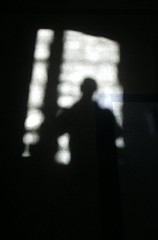liminal lines
Flaubert was in a sense the forerunner of writing scruples. I do believe that in the eighteenth century, say, Voltaire or Rousseau wrote much more naturally than people did from the nineteenth century onwards. Flaubert sensed this more than any other writer. If you look at Rousseau's letters, for instance, they're beautifully written. He dashed off twenty-three in a day, if necessary, and they're all balanced, they're all beautiful prose. Flaubert's letters are already quite haphazard; they're no longer literary in that sense. He swears, he makes exclamations, sometimes they're very funny. But he was one of the first to realize that there was appearing in front of him some form of impasse. And I think nowadays it's getting increasingly difficult because writing is no longer a natural thing for us.
Flaubert said at one point something like, "L'art est un luxe. Ilf faut des mains calmes et blanches." And then he went on to say something like, "On fait d'abord une concession et puis deux et puis on sent fou completèment." (WG Sebald in: the emergence of memory, conversations with W.G. Sebald, p.109) | Once you have an eye for it, if you go to the Mediterranean you can see that there used to be forests all along the Dalmation coast. The whole of the Iberian Peninsula was wooded; you could walk from the Atlas Mountains to Cairo in the shade at the time of Scipio. It's been going on for a long time, it's not just now. There are pockets, Corsica, for instance, where you can see what these forests looked like. The trees were much taller. They were like the American trees, straight up, some sixty yards. But there are only pockets of it left. And you can see that it's a process of attrition that's gone on for a long time and that organice nature is being replaced through the agency of the psychozootic power, whatever one might call them, i.e., us - it's being replaced by something else, by chemistry, dust, and stones, which function in some form or other. (Ibid., 103) | When I asked him casually why he had changed publishers, expecting the usual tale of finances and contracts and agents, he instead explained that it had all begun with the mysterious suicide of his German publisher, who hopped the S-Bahn to the mountains outside of Frankfurt, drank half a bottle of liquor, took off his jacket, and lay down to die in the snow. "When hypthermia sets in, it's apparently quite agreeable," Sebald said. "Like drowning," I said. To which Sebald replied, with a nod, "Drowning also is quite agreeable." (Ibid., 171) | "I hold with the wireless and the motor-car," he proclaimed. "I don't especially appreciate the blessings of technology." Passively but stubbornly, he fought off the tawdry intrusions of the modern world. "There's always an argument that is hard to resist," he observed. "So your daughter says, 'What if I get stranded in the middle of Thetford Forest in my not very reliable car - shouldn't I have a mobile phone?' The devil comes in with a carte de visite. That is always the way." (Ibid., 166)


0 Comments:
Post a Comment
<< Home